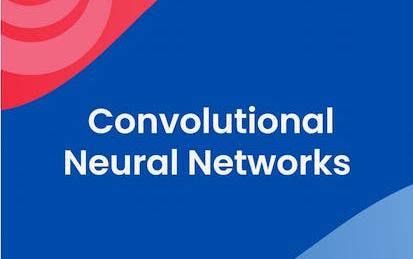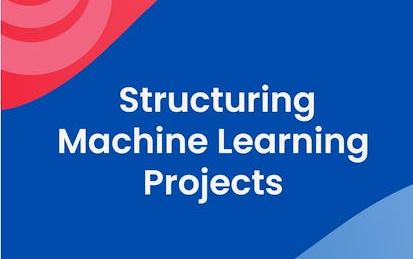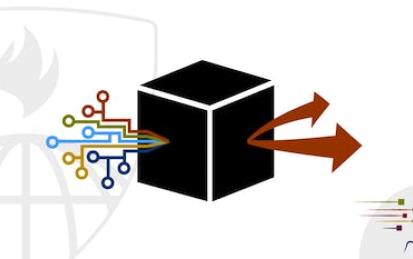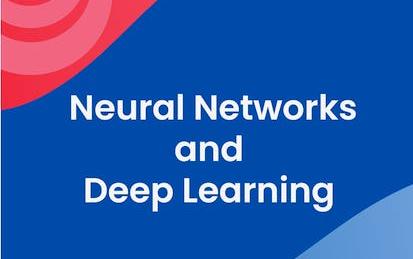

Our Courses

Browser-based Models with TensorFlow.js
Bringing a machine learning model into the real world involves a lot more than just modeling. This Specialization will teach you how to navigate various deployment scenarios and use data more effectively to train your model. In this first course, you’ll train and run machine learning models in any browser using TensorFlow.js. You’ll learn techniques for handling data in the browser, and at the end you’ll build a computer vision project that recognizes and classifies objects from a webcam. This Specialization builds upon our TensorFlow in Practice Specialization.
-
Course by

-
 Self Paced
Self Paced
-
 19 hours
19 hours
-
 English
English

Natural Language Processing with Attention Models
In Course 4 of the Natural Language Processing Specialization, you will: a) Translate complete English sentences into Portuguese using an encoder-decoder attention model, b) Build a Transformer model to summarize text, c) Use T5 and BERT models to perform question-answering. By the end of this Specialization, you will have designed NLP applications that perform question-answering and sentiment analysis, and created tools to translate languages and summarize text! Learners should have a working knowledge of machine learning, intermediate Python including experience with a deep learning fra
-
Course by

-
 Self Paced
Self Paced
-
 35 hours
35 hours
-
 English
English

Intro to Digital Manufacturing with Autodesk Fusion 360
The manufacturing industry is making a digital transformation, allowing companies to customize production through advances in machine learning, sustainable design, generative design, and collaboration, with integrated design and manufacturing processes. This course introduces innovations in CAD and digital manufacturing, speaking to the rapid changes taking place that are forever transforming the future of making.\n\nThis course will also explore foundational concepts behind Autodesk® Fusion 360™ CAD/CAM.
-
Course by

-
 Self Paced
Self Paced
-
 12 hours
12 hours
-
 English
English

Data Pipelines with TensorFlow Data Services
Bringing a machine learning model into the real world involves a lot more than just modeling.
-
Course by

-
 Self Paced
Self Paced
-
 12 hours
12 hours
-
 English
English
Getting Started with SAS Programming
This course is for users who want to learn how to write SAS programs to access, explore, prepare, and analyze data. It is the entry point to learning SAS programming for data science, machine learning, and artificial intelligence. It is a prerequisite to many other SAS courses. By the end of this course, you will know how to use SAS Studio to write and submit SAS programs that access SAS, Microsoft Excel, and text data.
-
Course by

-
 Self Paced
Self Paced
-
 25 hours
25 hours
-
 English
English

Predictive Modeling and Machine Learning with MATLAB
In this course, you will build on the skills learned in Exploratory Data Analysis with MATLAB and Data Processing and Feature Engineering with MATLAB to increase your ability to harness the power of MATLAB to analyze data relevant to the work you do. These skills are valuable for those who have domain knowledge and some exposure to computational tools, but no programming background.
-
Course by

-
 Self Paced
Self Paced
-
 22 hours
22 hours
-
 English
English

Customising your models with TensorFlow 2
Welcome to this course on Customising your models with TensorFlow 2! In this course you will deepen your knowledge and skills with TensorFlow, in order to develop fully customised deep learning models and workflows for any application. You will use lower level APIs in TensorFlow to develop complex model architectures, fully customised layers, and a flexible data workflow.
-
Course by

-
 27 hours
27 hours
-
 English
English
Machine Learning for All
Machine Learning, often called Artificial Intelligence or AI, is one of the most exciting areas of technology at the moment. We see daily news stories that herald new breakthroughs in facial recognition technology, self driving cars or computers that can have a conversation just like a real person. Machine Learning technology is set to revolutionise almost any area of human life and work, and so will affect all our lives, and so you are likely to want to find out more about it.
-
Course by

-
 Self Paced
Self Paced
-
 22 hours
22 hours
-
 English
English

Mathematics for Machine Learning: Multivariate Calculus
This course offers a brief introduction to the multivariate calculus required to build many common machine learning techniques. We start at the very beginning with a refresher on the “rise over run” formulation of a slope, before converting this to the formal definition of the gradient of a function. We then start to build up a set of tools for making calculus easier and faster. Next, we learn how to calculate vectors that point up hill on multidimensional surfaces and even put this into action using an interactive game.
-
Course by

-
 Self Paced
Self Paced
-
 18 hours
18 hours
-
 English
English

Natural Language Processing with Classification and Vector Spaces
In Course 1 of the Natural Language Processing Specialization, you will: a) Perform sentiment analysis of tweets using logistic regression and then naïve Bayes, b) Use vector space models to discover relationships between words and use PCA to reduce the dimensionality of the vector space and visualize those relationships, and c) Write a simple English to French translation algorithm using pre-computed word embeddings and locality-sensitive hashing to relate words via approximate k-nearest neighbor search.
-
Course by

-
 Self Paced
Self Paced
-
 33 hours
33 hours
-
 English
English

Practical Machine Learning
One of the most common tasks performed by data scientists and data analysts are prediction and machine learning. This course will cover the basic components of building and applying prediction functions with an emphasis on practical applications. The course will provide basic grounding in concepts such as training and tests sets, overfitting, and error rates. The course will also introduce a range of model based and algorithmic machine learning methods including regression, classification trees, Naive Bayes, and random forests.
-
Course by

-
 Self Paced
Self Paced
-
 9 hours
9 hours
-
 English
English

Data-driven Astronomy
Science is undergoing a data explosion, and astronomy is leading the way. Modern telescopes produce terabytes of data per observation, and the simulations required to model our observable Universe push supercomputers to their limits. To analyse this data scientists need to be able to think computationally to solve problems. In this course you will investigate the challenges of working with large datasets: how to implement algorithms that work; how to use databases to manage your data; and how to learn from your data with machine learning tools.
-
Course by

-
 Self Paced
Self Paced
-
 24 hours
24 hours
-
 English
English

Exploratory Data Analysis for Machine Learning
This first course in the IBM Machine Learning Professional Certificate introduces you to Machine Learning and the content of the professional certificate. In this course you will realize the importance of good, quality data.
-
Course by

-
 Self Paced
Self Paced
-
 14 hours
14 hours
-
 English
English

Introduction to TensorFlow for Artificial Intelligence, Machine Learning, and Deep Learning
If you are a software developer who wants to build scalable AI-powered algorithms, you need to understand how to use the tools to build them. This course is part of the DeepLearning.AI TensorFlow Developer Specialization and will teach you best practices for using TensorFlow, a popular open-source framework for machine learning. The Machine Learning course and Deep Learning Specialization from Andrew Ng teach the most important and foundational principles of Machine Learning and Deep Learning.
-
Course by

-
 Self Paced
Self Paced
-
 18 hours
18 hours
-
 English
English

Custom Models, Layers, and Loss Functions with TensorFlow
In this course, you will: • Compare Functional and Sequential APIs, discover new models you can build with the Functional API, and build a model that produces multiple outputs including a Siamese network. • Build custom loss functions (including the contrastive loss function used in a Siamese network) in order to measure how well a model is doing and help your neural network learn from training data.
-
Course by

-
 Self Paced
Self Paced
-
 31 hours
31 hours
-
 English
English

Getting started with TensorFlow 2
Welcome to this course on Getting started with TensorFlow 2! In this course you will learn a complete end-to-end workflow for developing deep learning models with Tensorflow, from building, training, evaluating and predicting with models using the Sequential API, validating your models and including regularisation, implementing callbacks, and saving and loading models. You will put concepts that you learn about into practice straight away in practical, hands-on coding tutorials, which you will be guided through by a graduate teaching assistant.
-
Course by

-
 Self Paced
Self Paced
-
 26 hours
26 hours
-
 English
English

Data Science in Real Life
Have you ever had the perfect data science experience? The data pull went perfectly. There were no merging errors or missing data. Hypotheses were clearly defined prior to analyses. Randomization was performed for the treatment of interest. The analytic plan was outlined prior to analysis and followed exactly. The conclusions were clear and actionable decisions were obvious. Has that every happened to you? Of course not. Data analysis in real life is messy. How does one manage a team facing real data analyses? In this one-week course, we contrast the ideal with what happens in real life.
-
Course by

-
 Self Paced
Self Paced
-
 7 hours
7 hours
-
 English
English

Natural Language Processing in TensorFlow
If you are a software developer who wants to build scalable AI-powered algorithms, you need to understand how to use the tools to build them. This Specialization will teach you best practices for using TensorFlow, a popular open-source framework for machine learning. In Course 3 of the DeepLearning.AI TensorFlow Developer Specialization, you will build natural language processing systems using TensorFlow. You will learn to process text, including tokenizing and representing sentences as vectors, so that they can be input to a neural network.
-
Course by

-
 Self Paced
Self Paced
-
 24 hours
24 hours
-
 English
English

Introduction to Machine Learning in Production
In the first course of Machine Learning Engineering for Production Specialization, you will identify the various components and design an ML production system end-to-end: project scoping, data needs, modeling strategies, and deployment constraints and requirements; and learn how to establish a model baseline, address concept drift, and prototype the process for developing, deploying, and continuously improving a productionized ML application.
-
Course by

-
 Self Paced
Self Paced
-
 12 hours
12 hours
-
 English
English

Smart Analytics, Machine Learning, and AI on Google Cloud
Incorporating machine learning into data pipelines increases the ability to extract insights from data. This course covers ways machine learning can be included in data pipelines on Google Cloud. For little to no customization, this course covers AutoML. For more tailored machine learning capabilities, this course introduces Notebooks and BigQuery machine learning (BigQuery ML). Also, this course covers how to productionalize machine learning solutions by using Vertex AI.
-
Course by

-
 Self Paced
Self Paced
-
 7 hours
7 hours
-
 English
English

Improving Deep Neural Networks: Hyperparameter Tuning, Regularization and Optimization
In the second course of the Deep Learning Specialization, you will open the deep learning black box to understand the processes that drive performance and generate good results systematically.
-
Course by

-
 Self Paced
Self Paced
-
 24 hours
24 hours
-
 English
English
Sequences, Time Series and Prediction
If you are a software developer who wants to build scalable AI-powered algorithms, you need to understand how to use the tools to build them. This Specialization will teach you best practices for using TensorFlow, a popular open-source framework for machine learning. In this fourth course, you will learn how to build time series models in TensorFlow. You’ll first implement best practices to prepare time series data. You’ll also explore how RNNs and 1D ConvNets can be used for prediction.
-
Course by

-
 Self Paced
Self Paced
-
 23 hours
23 hours
-
 English
English

Google Cloud Big Data and Machine Learning Fundamentals
This course introduces the Google Cloud big data and machine learning products and services that support the data-to-AI lifecycle. It explores the processes, challenges, and benefits of building a big data pipeline and machine learning models with Vertex AI on Google Cloud.
-
Course by

-
 Self Paced
Self Paced
-
 10 hours
10 hours
-
 English
English

Convolutional Neural Networks in TensorFlow
If you are a software developer who wants to build scalable AI-powered algorithms, you need to understand how to use the tools to build them. This course is part of the DeepLearning.AI TensorFlow Developer Specialization and will teach you best practices for using TensorFlow, a popular open-source framework for machine learning. In Course 2 of the DeepLearning.AI TensorFlow Developer Specialization, you will learn advanced techniques to improve the computer vision model you built in Course 1.
-
Course by

-
 Self Paced
Self Paced
-
 17 hours
17 hours
-
 English
English

Process Mining: Data science in Action
Process mining is the missing link between model-based process analysis and data-oriented analysis techniques. Through concrete data sets and easy to use software the course provides data science knowledge that can be applied directly to analyze and improve processes in a variety of domains. Data science is the profession of the future, because organizations that are unable to use (big) data in a smart way will not survive. It is not sufficient to focus on data storage and data analysis. The data scientist also needs to relate data to process analysis.
-
Course by

-
 Self Paced
Self Paced
-
 22 hours
22 hours
-
 English
English



